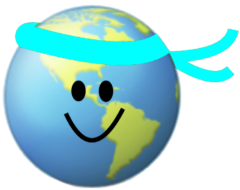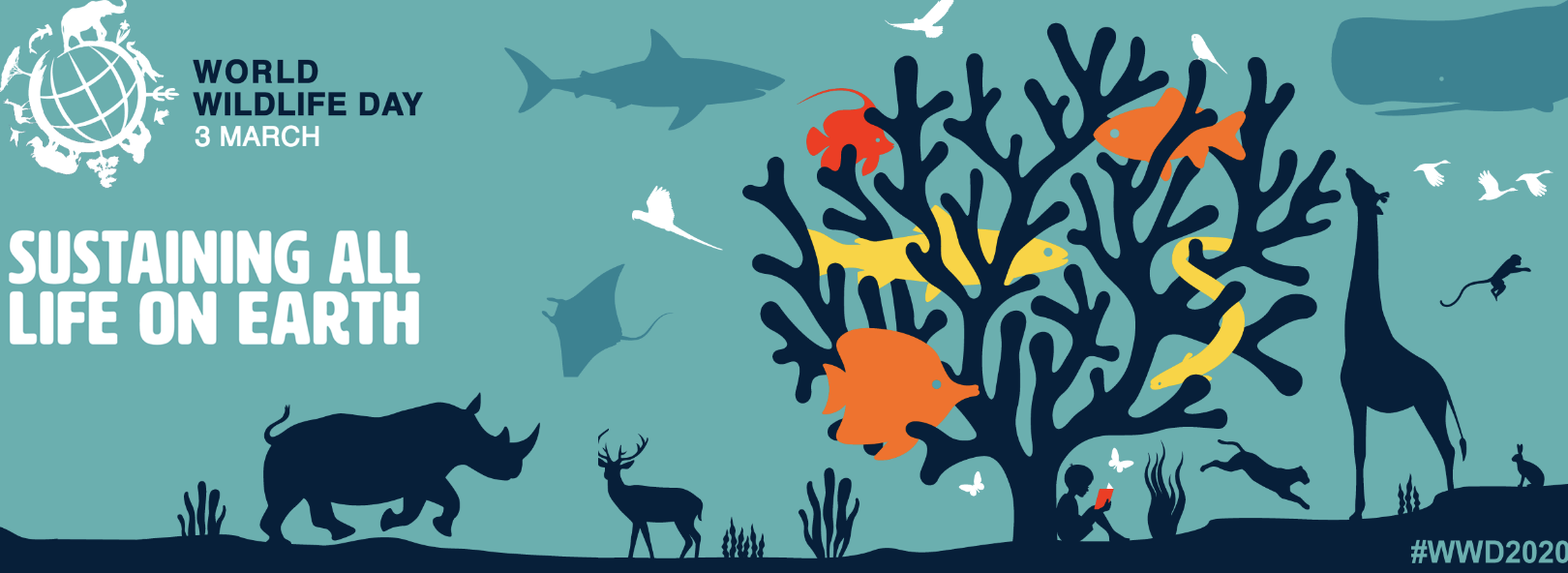“Over the last 40 years, global populations of birds, fish, mammals, amphibians & reptiles have declined by nearly 60%. Biodiversity loss is a planetary crisis that must be addressed. “
World Wildlife Day Organization
By Leo Berry, Founder of Helping Ninjas and Lindsey Berry, CEO, Helping Ninjas
In 2013, the United Nations named March 3rd as World Wildife Day. A day of global observation to celebrate our world’s wildlife and biodiversity and raise awareness of endangered animals and plants, and wildlife crime.
All species have significant roles in their ecosystems.
Ecosystems can be small as a rain puddle or as big as the ocean. All of the Earth’s plants and animals rely on ecosystems to provide food and habitat. Ecosystems must maintain a balance in order to stay vital.
“The word “ecosystem” is short for ecological system and consists of many different organisms such as plants, animals, soil, water and microorganisms living together and relying on each other for existence.”
Scienceing Magazine
There are many ways we can help protect species and their habitats, and many reasons why we should. Natural ecosystems are responsible for the air you breathe, water you drink and food you eat.
Without wildlife, biodiversity wouldn’t exist. And, we wouldn’t exist without biodiversity.
Ecosystems are life support systems.
Without biodiversity there is no balance in our ecosystems. Too much of one thing, and nothing to counter balance, is one way ecosystems are being destroyed and species are going extinct.
Millions of species can live in one area, and once they are gone, they are gone forever.
“When that balance is disrupted organisms cannot thrive, and some may even die. Possible disruptions caused by humans include pollution, deforestation, land development, or removing too many resources like water. Making wise choices to protect ecosystems will help all the living things continue to live and thrive.”
Generation Genuius
According to the United Nation’s Millennium Ecosystem Assessment, 60% of the ecosystems on Earth are being used up faster than they can replenish themselves.
Ecosystems are getting destroyed because of things such as destruction of habitats, over population and also extreme weather. Destruction of ecosystems affects biodiversity, harming not just wildlife, but people too. For instance, what is happening in Africa now.
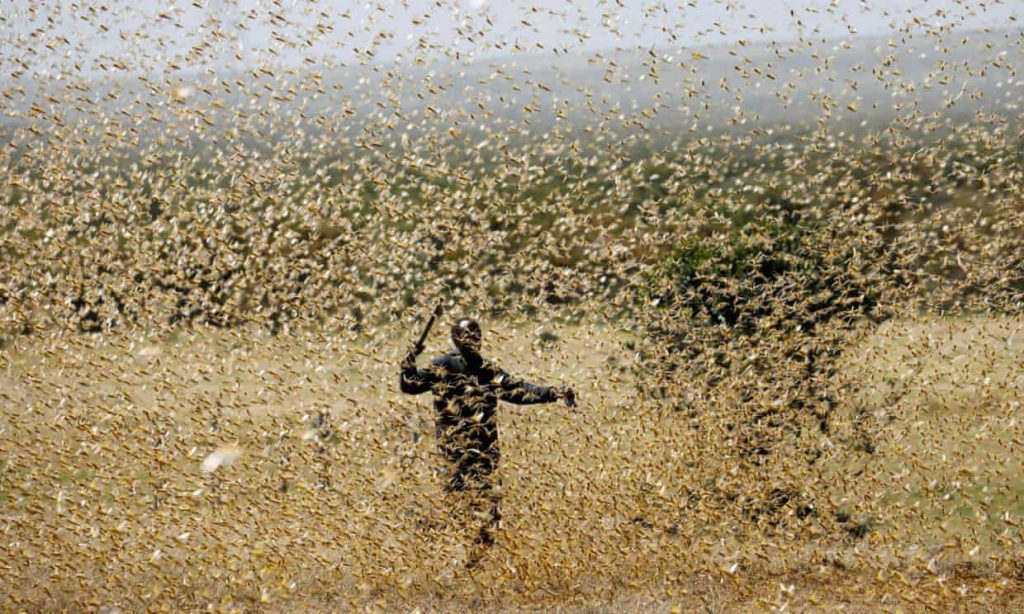
Photograph: Baz Ratner/Reuters: A man attempts to fend off a swarm of desert locusts at a ranch near the town of Nanyuki, in Kenya’s Laikipia county.
Billions of locust are swarming communities in Africa because of a surge of cyclone rain storms and recent changes in our climate.
According to the World Meteorological Organization, “The heavy rainfall brought by the extreme positive Indian Ocean Dipole (IOD) and the unusual cyclonic activity contributed to the current Desert Locust upsurge.”
The locusts are devouring crops at a pace that the African people cannot keep up. The locust invasion has reached 10 countries and is putting millions of people in danger. The FAO has warned that the livelihood and food security of 25 million people could be endangered by the locusts.
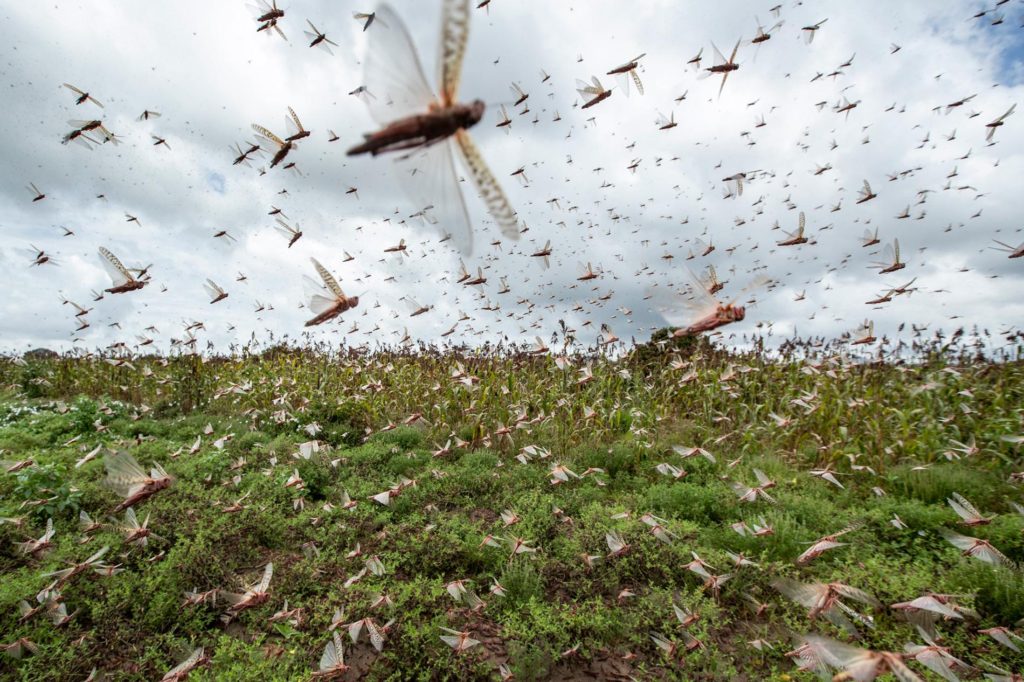
Desert locusts have swarmed into Kenya. The insects are decimating farmland, threatening an already vulnerable region. National Geo
Ocean temperatures are rising and this is causing evaporation. When evaporation happens, it it rains.
Large amounts of rainfall, helps locusts breed.
Cyclones are not uncommon to that region, but normally after much rainfall, it dries out. However, there has been an unprecedented number of cyclones since 2018, the locusts have “increased 8,000-fold.”
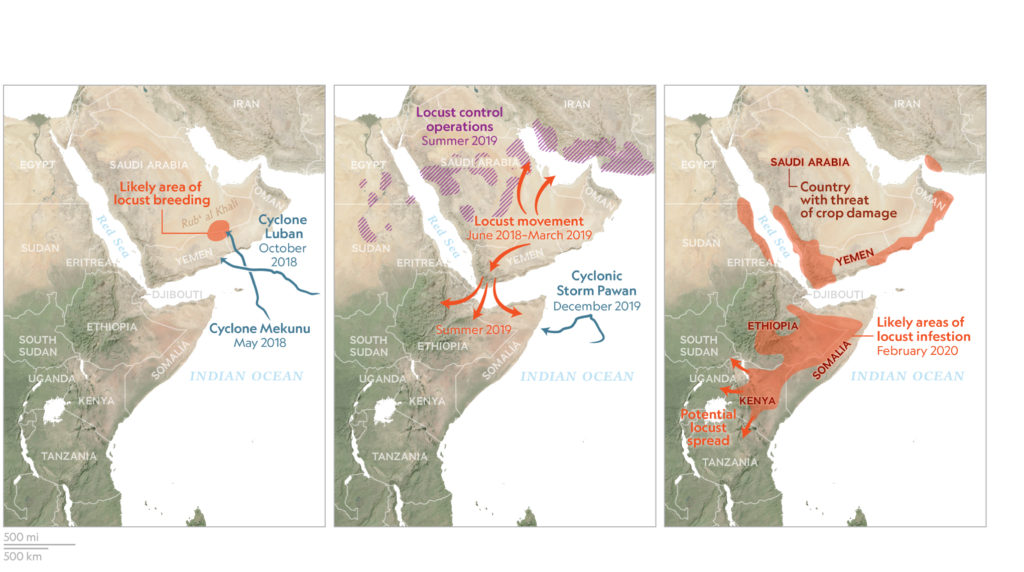
To combat the locusts, Africa’s government is aerially spraying pesticides directly on the locusts to kill them. And, they can’t seem to kill them fast enough because the locusts are multiplying and breed every three months.
So they can continue to spray more pesticides.
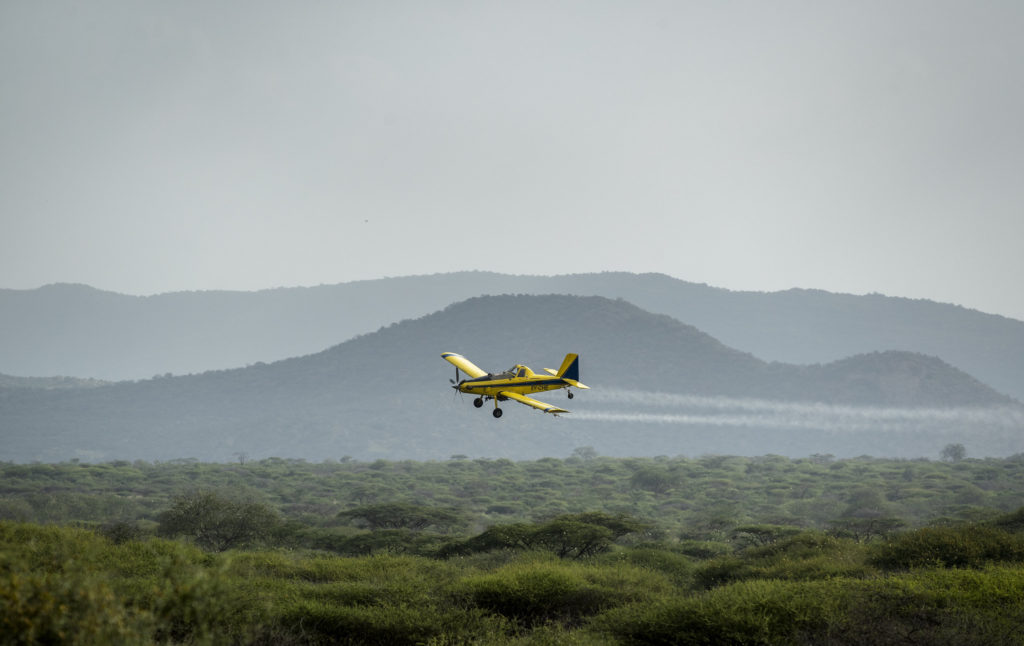
According to NPR News, “As locusts descend by the billions on parts of Kenya in the worst outbreak in 70 years, small planes are flying over infested areas and spraying pesticides — which experts say is the only effective control.”
The government is having to evacuate African communities away from the areas being sprayed because the pesticides are toxic.
Even though the pesticides are meant to kill the locusts, pesticides can kill more bugs than needed and that results in less bugs to eat for other wildlife who depend on certain species of bugs. This decreases other insects and wildlife populations that are helpful. Pesticides also harm healthy bacteria and microbes that live in our soil, and also can get into natural water ways through run-off, poisoning other species and drinking water.
The use of pesticides can cause a disruption in the balance of the whole ecosystem.
Many things affect a balanced ecosystem and fortunately for us, people have a way to help achieve that balance.
It’s called conservation.
The definition of conservation is simple: prevention of wasteful use of a resource.
Let’s take for example, whales, a vital resource.
Whales are an important part of the the ocean habitat but are equally important to humans. Whales control the entire ecosystem of our oceans.. Without whales, biodiversity in our oceans — and the entire planet, would be thrown off.
How? The more whales, the more fish and plankton, the more plankton, the more carbon pulled out of the air.
Research shows that before the number of whales were reduced, whales once removed more than ten millions tons of carbon from the atmosphere every year.
Whales are at the top of the food chain and have an important role in the overall health of the marine environment. Whales play a significant role in capturing carbon from the atmosphere; each great whale sequesters an estimated 33 tons of CO2 on average, thus playing their part in the fight against climate change.
World Wildlife Organization
The video below, is about whales and our ecosystems, and the important role they play to our survival.
Unfortunately, whales are facing extinction. Of the 13 whale species, 7 of them are currently classified as endangered or vulnerable.
Whale populations are threatened because of whale hunting, overfishing, dam/bridge construction, private/commercial boating and commercial whaling, disturbance by recreational watercraft, and noise pollution plastic pollution and ingestion of marine debris, agriculture pollution, oil and gas development — and changes in our climate.
As ocean temperatures rise, prey populations become affected and affects ocean currents, which alters prey distribution, changing feeding grounds, and altering the migratory pathways of whales.
Alarmingly, it is not just whales that are facing extinction.
Biodiversity in all of our ecosystems are being threatened.
Scientists believe between 10,000 and 100,000 species cease to exist every year due to habitat loss, resource depletion, climate change, and other factors.
One Green Planet Org
When a species goes extinct, it creates an imbalance in nature and negatively effects our food chains and ecosystems. This is a problem because all species need ecosystems to survive.
The Endangered Species Act was passed in the United States in 1973 to help with conservation efforts.
Forty-seven years later, we need conservation efforts more than ever before. Time is now a large factor.
According to the International Union for Conservation of Nature, we are now losing animal species at more than 1,000 times the “normal” rate.
Our planet now faces a global extinction crisis never witnessed by humankind. Scientists predict that more than 1 million species are on track for extinction in the coming decades.
Center For Biological Diversity
What small things can you do to help?
One small way to help, is just by sharing this blog.
Sharing what you learned, helps create awareness and helps educate others on this important and time sensitive issue.
Please consider learning about conservation and how can you help reduce your carbon imprint and help wildlife, their habitats and our ecosystems — and ultimately, help save our home.
